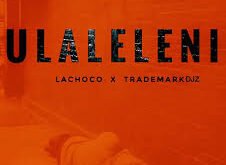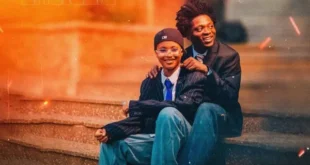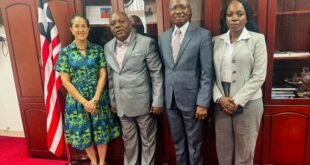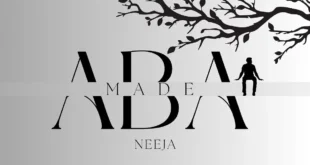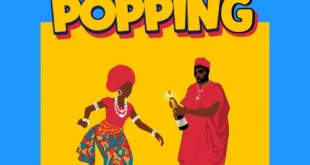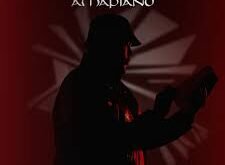By Lincoln G. Peters
Monrovia, July 26, 2024- United States Charge d’Affaires to Liberia Catherine Rodriguez embarrassingly stormed and walked out of Liberia’s 177 Independence Day Celebration amid an eye-opening firing speech on Liberia-US relationship.
There has been no official statement from the US Embassy in Monrovia on the US envoy’s storming out of the national ceremony, which included several dignitaries, including Ghanaian President Nana Akufo-Addo.
However, what is more certain is that the 177th Independence Day orator spoke the truth to the United States about her treatment of Liberia as a stepchild and a country that continues to look up to her while she pretends to be looking at her.
During the occasion held at the Centennial Pavilion in Central Monrovia, the US Charge d’Affaires walked out of the occasion due to criticism from the Orator regarding what she terms as the United States’ selfish interest in Liberia’s development growth and progress.
Delivering her Keynote address, the 177 Independence Day orator, Dr. Robtel Neajai Pailey, expressed her concerns about the outsized influence of the United States in Liberia’s transitional justice process.
“We must forge new strategic partnerships based on mutual benefit and disabuse ourselves of the notion that we have a ‘special relationship’ with America. Truth be told, this so-called ‘special relationship’ only exists in our imagination. Lest we forget that the United States was one of the last countries to recognize our independence. Lest we forget that the United States has taken more from us than it has given. Lest we forget, the United States will always serve its own interests above all else. Once we accept these truths, we will appreciate that a re-imagined Liberia can never be anyone’s ‘stepchild,’” she argued.
According to Dr. Pailey, a re-imagined Liberia is not only free from colonial relations of power but also from colonial artifacts that cripple Liberia, adding that in this vein, she would like to renew previous calls to adopt national symbols that represent the “cultural breadth and historical depth” of our shared experiences.
” I urge us to forge a new political identity by re-imagining and revising these symbols. Why is the national motto on our seal not ‘the love of liberty united us here,’ as suggested by the Truth and Reconciliation Commission’s final report? Why are we still calling our highest national honor the ‘Most Venerable Order of Knighthood of the Pioneers of the Republic of Liberia’ when the word ‘pioneers’ remains politically charged? How could renaming our capital, Monrovia, help us to decolonize? ” Pailey stated.
The Liberian female author lamented that by refashioning Liberia’s flag, seal, national anthem, and national awards, among other things, Liberians can reimagine Liberia based on a set of ideals that they all uphold.
She further suggested that they should establish a committee of Liberian scholars, local government officials, cultural experts, and visual artists to devise new symbols of national relevance that will culminate in a referendum.
The young Activist pointed out that Liberia must also adopt one of Liberia’s most widely spoken languages as its national language and embrace Liberian English as its lingua franca. “This does not negate the need to master Standard English; instead, it promotes multilingualism as a form of nationalism,” she added.
“Because our norms and traditions are fluid rather than fixed, we must understand that the dichotomy between indigenous and settler, domestic and diasporic is false. One thing that unites us all is our shared history of migration. Some of us are more recent migrants than others,” the academia added.
For example, she noted that most of Liberia’s sixteen ethno-linguistic groups are not ‘indigenous’; they migrated in several waves from the 12th century onwards.
” By the time free and formerly enslaved blacks arrived on the coast of pre-settler Liberia in the mid-nineteenth century, 250 years of migration had preceded them. So, our shared historical narrative must be that we are all immigrants. None of us belongs here more than the other. Dignity must define us,” she added. -Edited by Othello B. Garblah
 JamzNG Latest News, Gist, Entertainment in Nigeria
JamzNG Latest News, Gist, Entertainment in Nigeria
